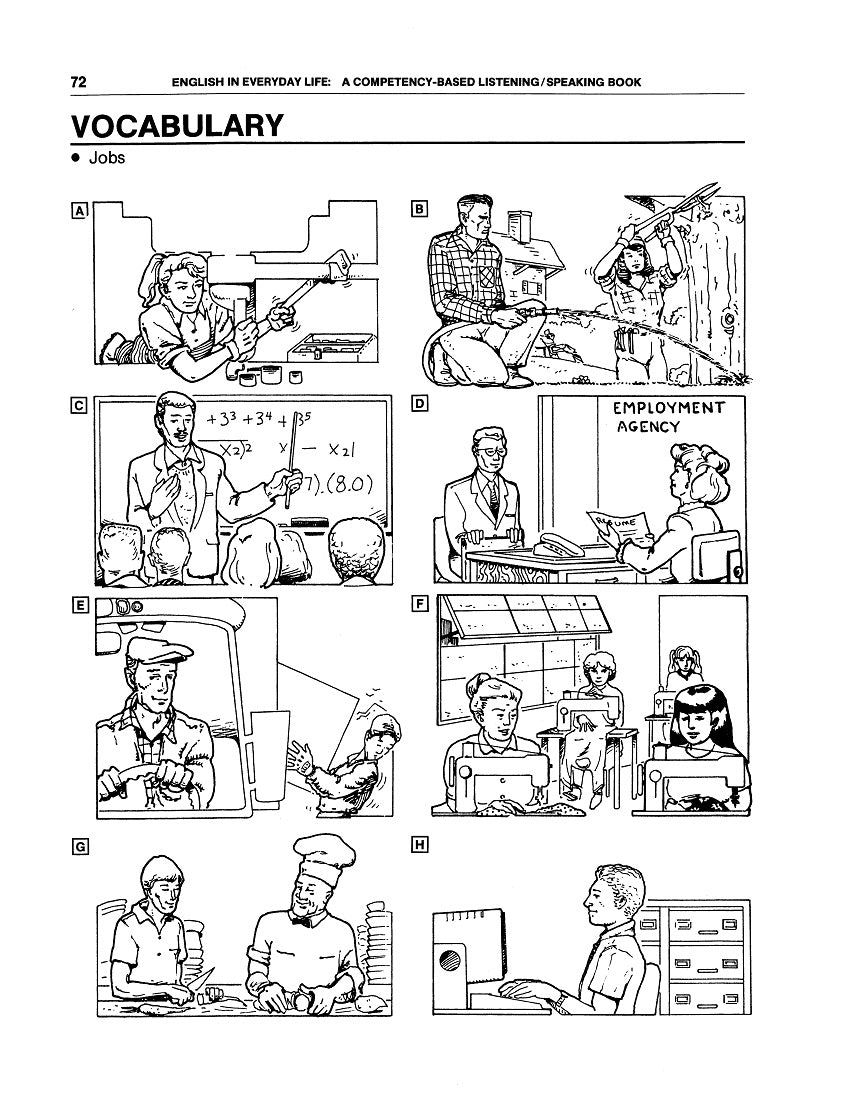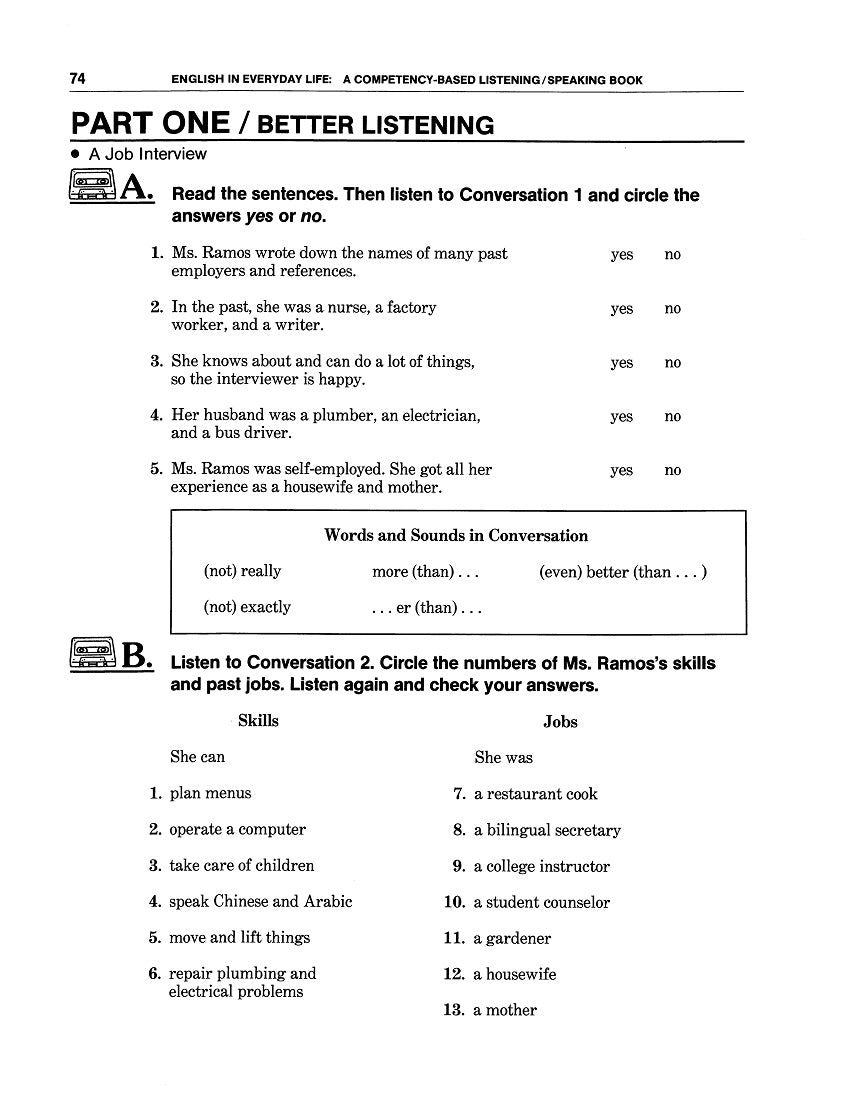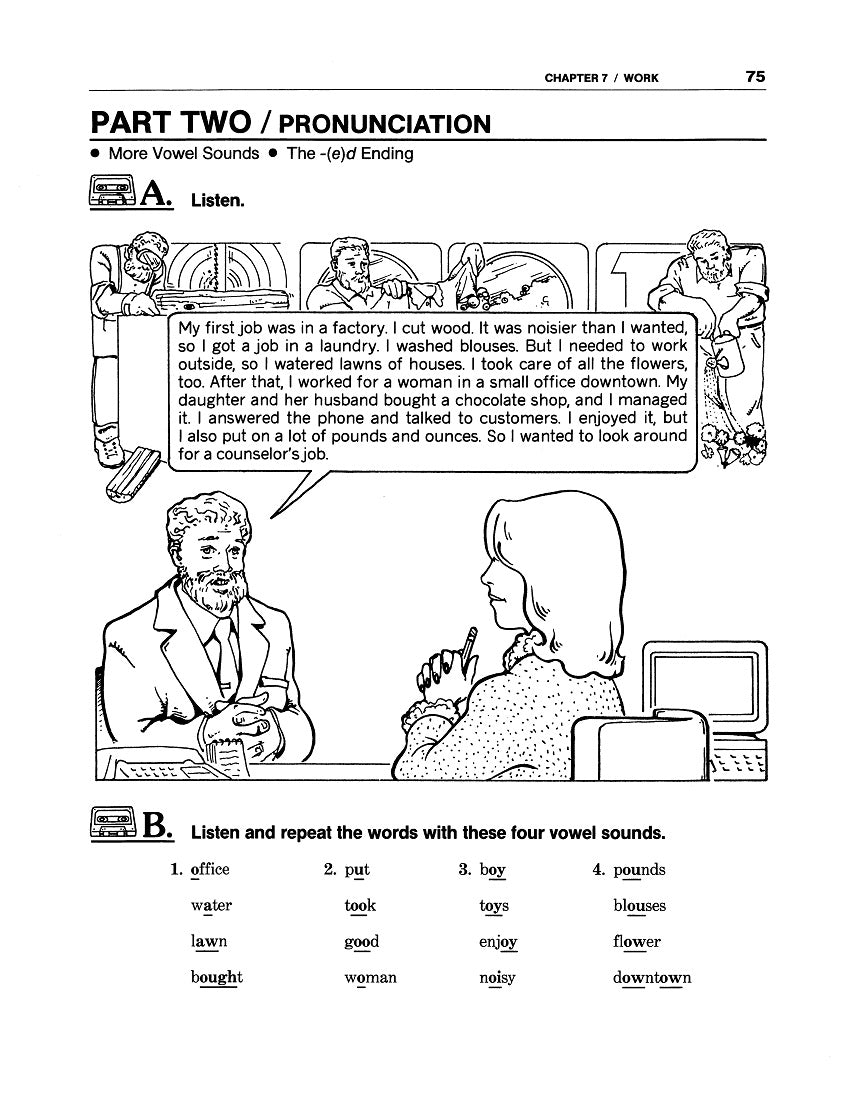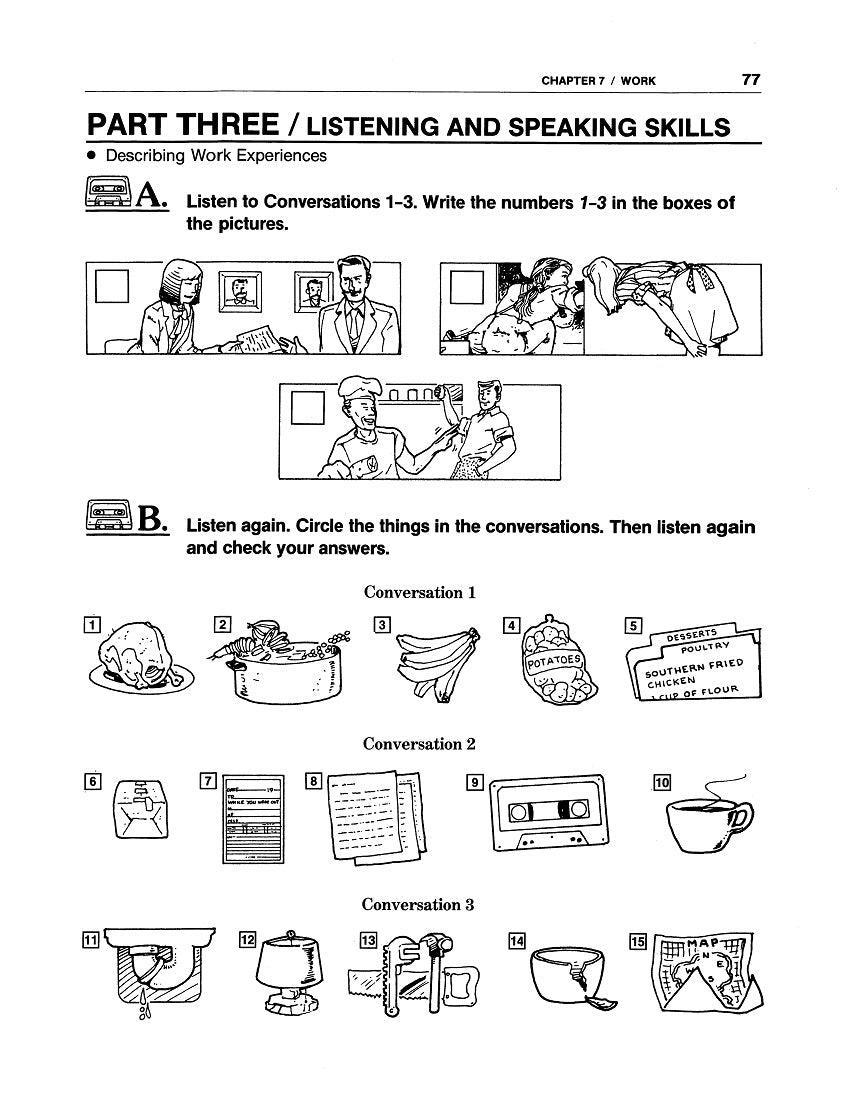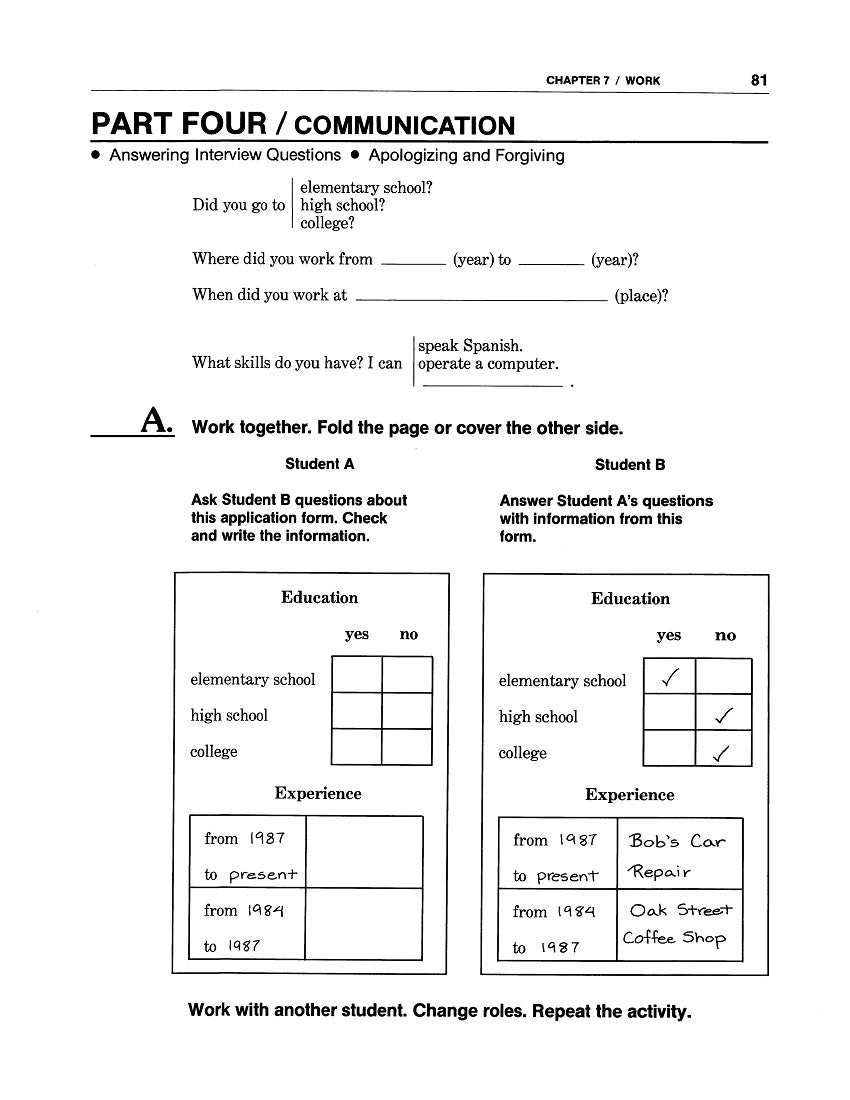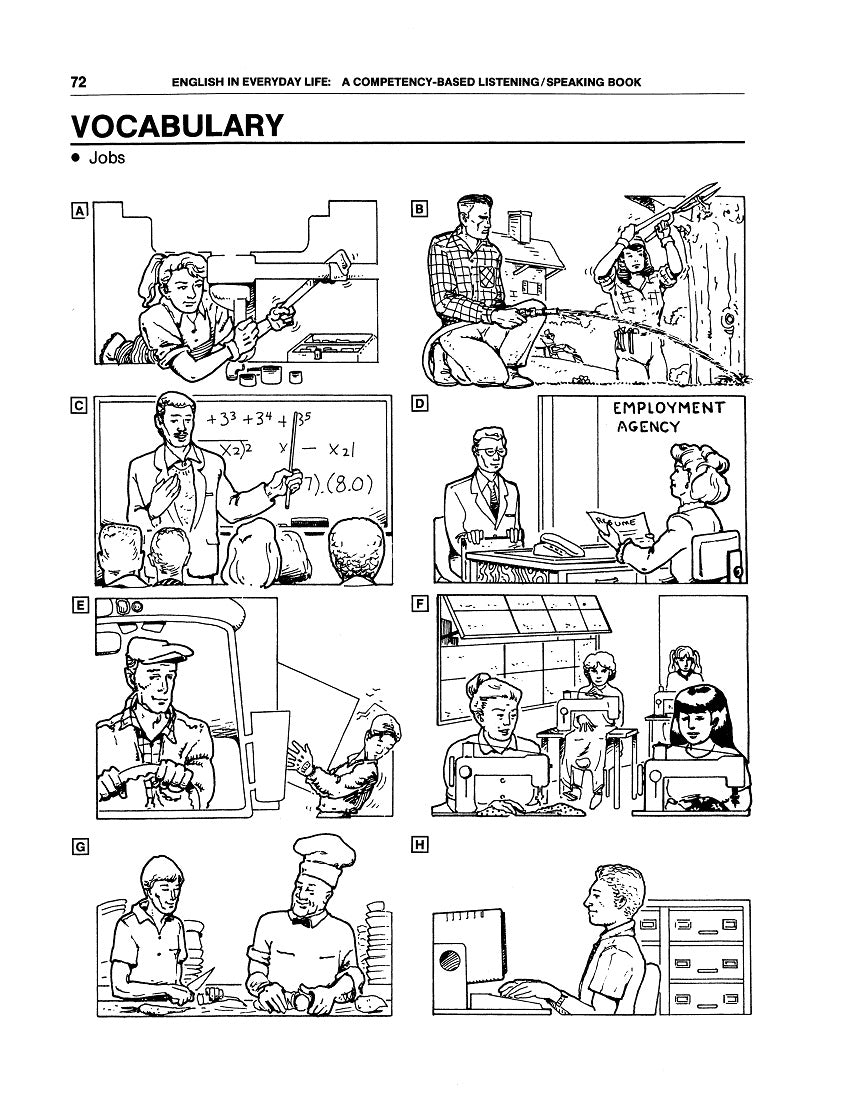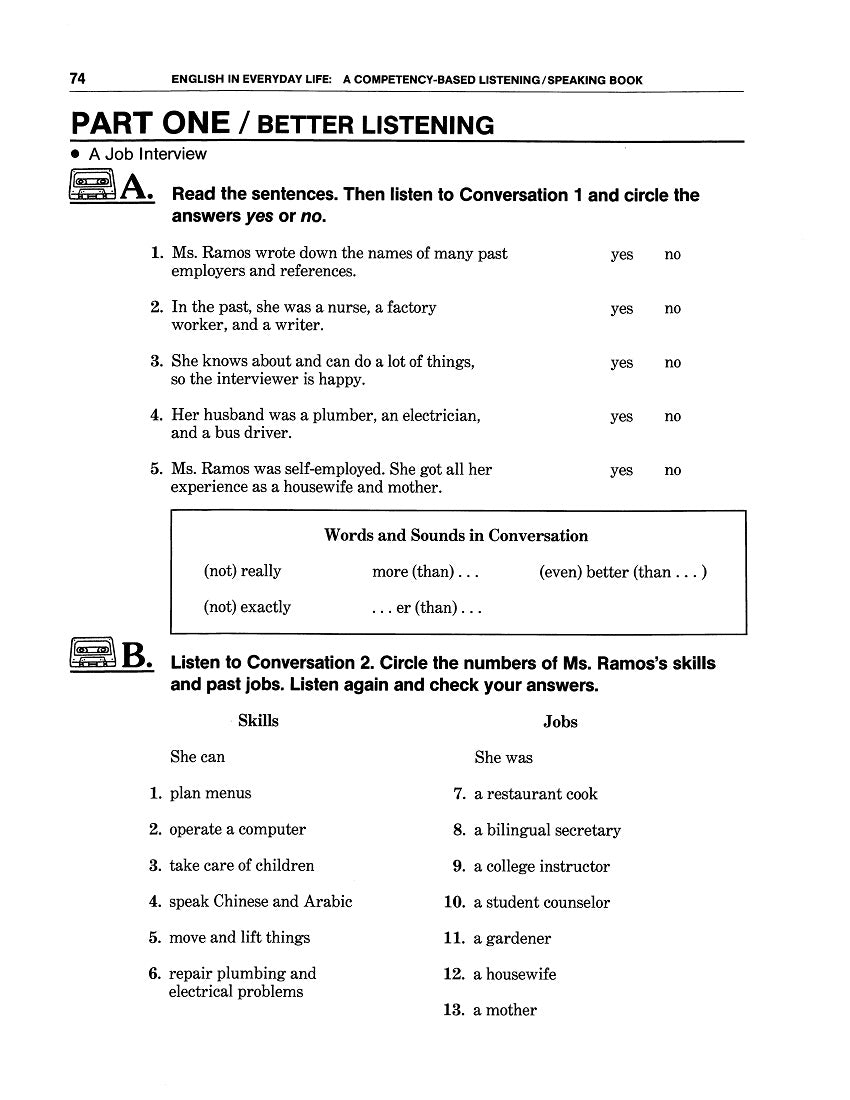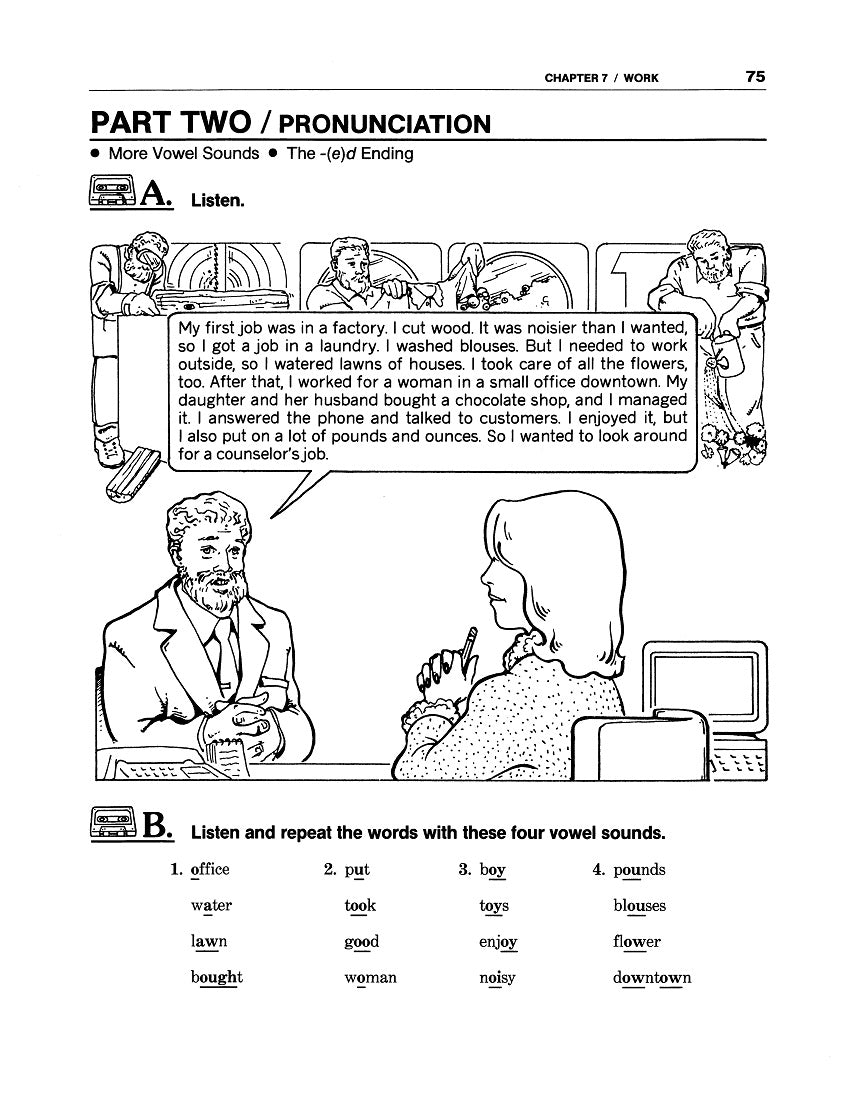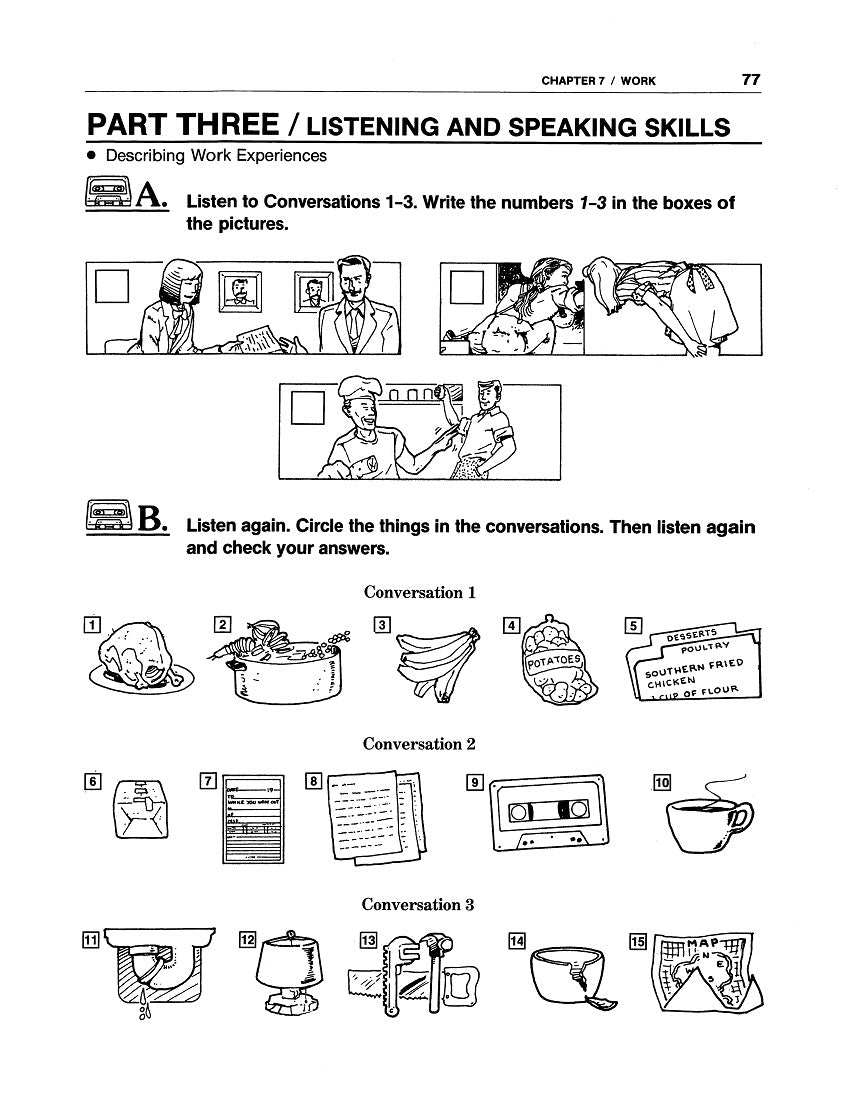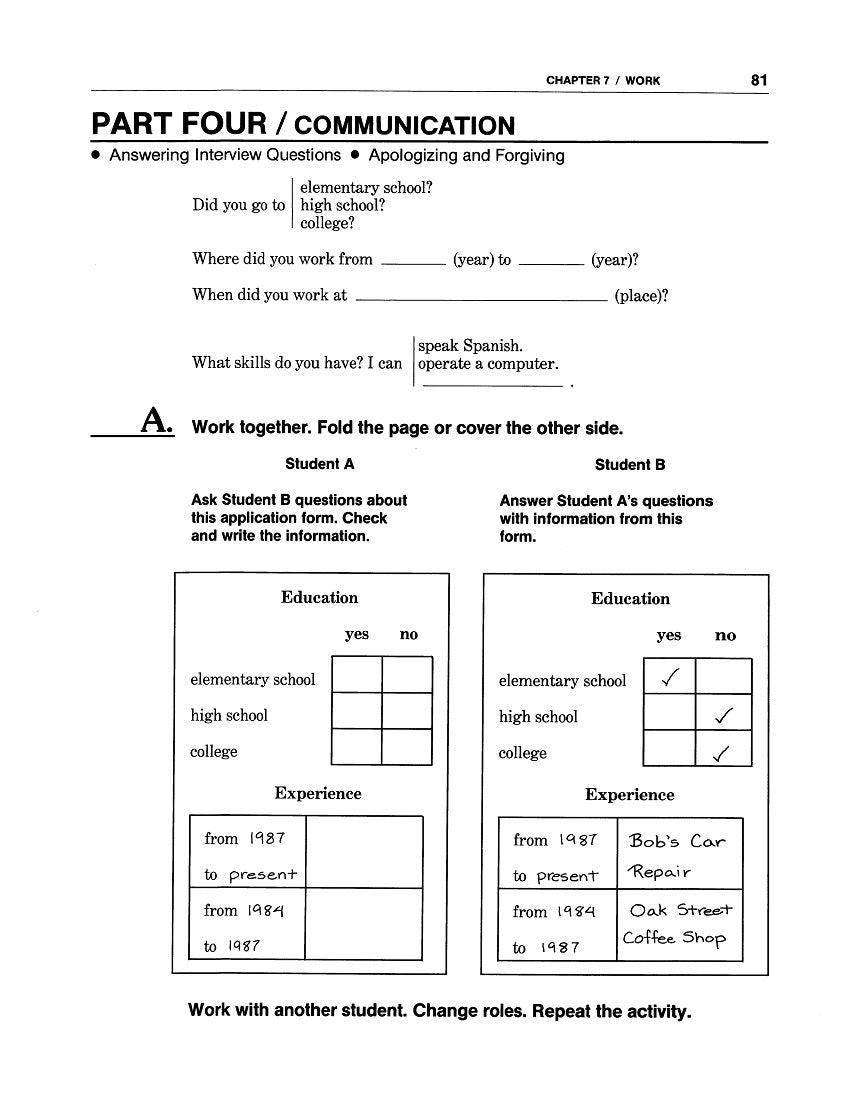1
/
of
5
Work/Life English
E-05.07 At High-Beginning Levels & Rising, Stay Focused on What People Do in Their Work & Lives
E-05.07 At High-Beginning Levels & Rising, Stay Focused on What People Do in Their Work & Lives
Regular price
$3.00 USD
Regular price
Sale price
$3.00 USD
Unit price
/
per
English in Everyday Life: Work
WorkLife English: Competency-Based Listening/Speaking, Book 2 Chapter 7.
Tapescript
13 + 3 = 16 pp
Who It’s For: (Teachers & Helpers of) Learners Moving Beyond Beginning, to Whom (the Language of) Work Is Significant & Relatable to Everyday Living
Why It’s Useful: Nearly all (young) adults work for a living or/and satisfaction. For many, the parallels between employment / business talk and relating to others in other areas of life are strong. Here’s material designed to boost ability to Understand & Use Speech that tells (Job) Requirements, Experience, & Directives—as well as to Ask & Answer (Interview) Questions and to Make & Accept Apologies. Its (possibly new) Grammar is that of the Simple Past Tense, Reflexive Pronouns, Comparative Adjectives
What You’ll Do:
[1] After checking out the Chapter 7 Opener, you / your students can begin with Vocabulary that joins Job Titles used as Sentence Subjects with Predicates consisting of Verbs + Objects / Prepositional Phrases. Then listen to demonstrate that you can understand a simulated, generic Job Interview containing talk about Qualifications, Skills, & Experience. When you tackle Pronunciation Exercises, you’ll get and enunciate the differences among four vowel sounds  —and three regular Simple-Past Verb Endings / d t id /.
—and three regular Simple-Past Verb Endings / d t id /.
[2] Listening & Speaking Skills called for in Part Three relate to cooking, telephone messaging, doing repairs. Contractions & Words in Conversations are items like  . To “play” in small groups is a Guessing Game about the responsibilities of past jobs. Part Four / Communication happens in reciprocal segments of pretend job interviews. It ends with Apologies for what participants didn’t, can’t, or failed to do.
. To “play” in small groups is a Guessing Game about the responsibilities of past jobs. Part Four / Communication happens in reciprocal segments of pretend job interviews. It ends with Apologies for what participants didn’t, can’t, or failed to do.
[3] As accustomed, don’t hesitate to refer to highlighted sections in attached AudioScript pages to correct or evaluate your uses of language. You might also be interested in Download E-05.11, an Answer Key for Text Exercises and/or E-05.12, which contains supplemental Pronunciation material.
Couldn't load pickup availability
